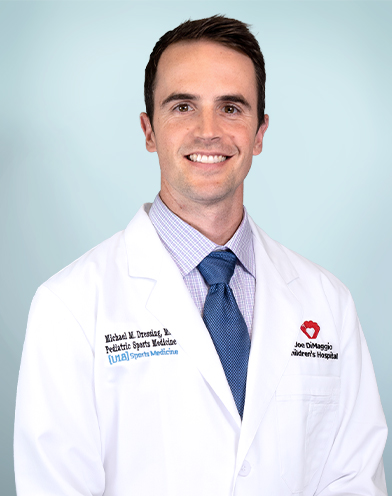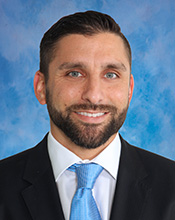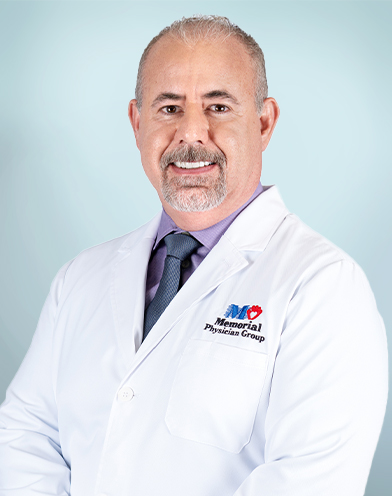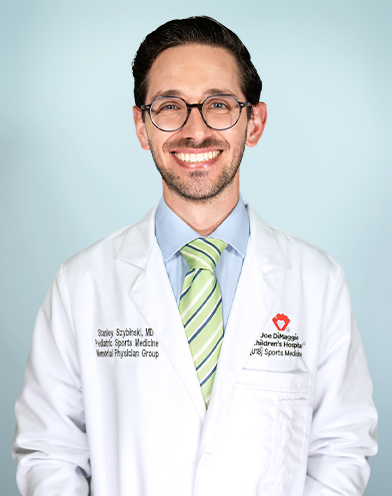Athletic Training Services
Certified athletic trainers help young athletes stay safe while enjoying their favorite sports
What Is an Athletic Trainer?

Athletic trainers prevent, assess and help treat on-field sports injuries. They undergo rigorous training in musculoskeletal injuries and must pass a certification exam. Trainers also must stay current on the latest prevention and care methods.

Joe DiMaggio Children’s Hospital has launched a online training initiative with the U.S. Center for SafeSport® (the Center), which is an independent nonprofit organization responsible for responding to and preventing emotional, physical, and sexual misconduct and abuse in the U.S. Olympic and Paralympic Movement. The Center also serves as an educational resource for sports organizations at all levels, from recreational sports organizations to professional leagues. All Joe DiMaggio Children’s Hospital athletic trainers complete this training annually.
Joe DiMaggio Children’s Hospital athletic trainers work with child and adolescent sports teams throughout the region. We are often the first ones to rush to an injured athlete’s aid. And our focus on prevention helps more active children avoid injuries so they can keep playing their favorite sports.
Our Athletic Training Services
As medical paraprofessionals, athletic trainers work under the direction of physicians — our sports medicine doctors and pediatric orthopedic surgeons. Their close collaboration means your child receives outstanding care. Our team is a trusted partner to athletes of all levels, including U.S. Figure Skating and USA Wrestling. Find out more about [U18] Sports Medicine.
Athletic training services at Joe DiMaggio Children’s Hospital include:
Sports Injury Prevention
Certified athletic trainers work with coaches, athletes and parents to raise awareness of common injuries and the best prevention methods. These efforts include education about proper techniques for tackling and throwing. Trainers may also recommend personal or team equipment that reduces the risk of injury.
Before games, trainers help the team get warmed up and stretched out. They may provide one-on-one services, such as applying athletic tape to weak areas, to patients at risk for injuries.
On-Field Injury Assessment, Treatment and Care Coordination
Our trainers provide coverage for team practices and events like tournaments. Their in-depth knowledge of the musculoskeletal system enables them to assess on-field injuries quickly. They pinpoint the source of the issue and assist coaches in making return-to-play decisions.
For more severe injuries or orthopedic trauma, trainers relay details to our sports medicine doctors and together determine how to proceed. This information helps expedite care on the field or during follow-up appointments in our clinic.
Rehabilitation Assistance
Trainers provide specialized care to young athletes recovering from injuries. They do functional and performance testing to determine whether it’s safe for your child to resume pre-injury activity levels. Athletic trainers may also recommend extra drills to improve strength and reinforce proper technique.
Sports Injuries We Care For
Injuries in young athletes that we prevent, assess and help treat include:
- Concussions
- Gamekeeper’s thumb, tear in the band of tissue near the base of the thumb
- Heat-related illness, such as heat exhaustion, which can happen when exercising outdoors in high temperatures
- Little League elbow, tendon injuries in athletes whose sports include frequent throwing
- Running injuries, including plantar fasciitis, iliotibial (IT) band syndrome and Achilles tendonitis
- Sprains and strains
- Tendonitis, inflammation that often occurs with too much activity










